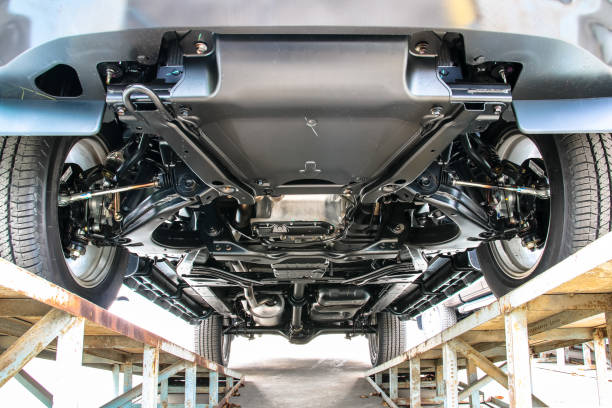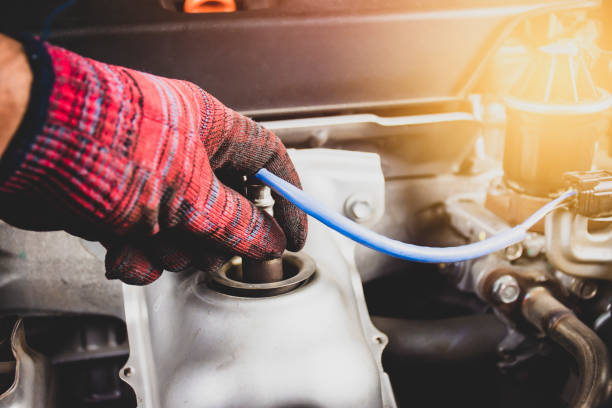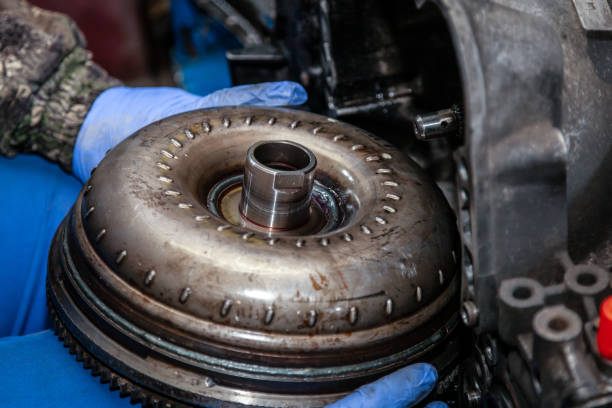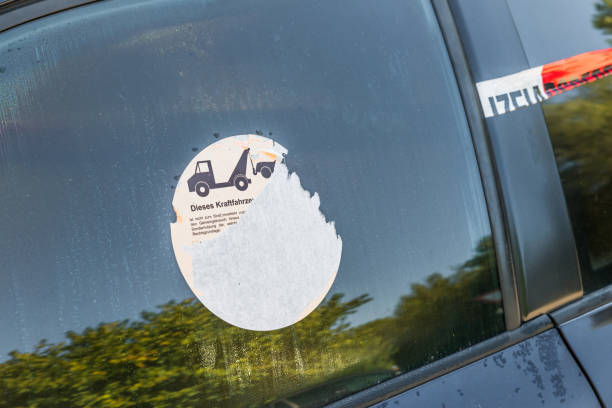Oil changes are a vital part of car maintenance. It is crucial to get oil changes on a regular basis in order to keep your car running smoothly and efficiently. But why are oil changes so important?
The primary function of oil is to lubricate the engine’s moving parts. However, over time, oil breaks down and loses its lubricating properties. This can cause wear and tear on the engine, leading to potentially costly repairs.
Regular oil changes ensure that the engine gets fresh, clean oil. This helps improve engine performance, fuel economy, and extends the life of the car. On top of that, it also helps maintain the car’s warranty. Many car manufacturers require regular oil changes as part of their warranties, so it’s important to keep up with them.
Warning Signs of Overdue Oil Change
One of the most obvious signs that your car needs an oil change is the oil light on your dashboard. However, there are other signs to look out for, especially if you have an older car.
One of the most common signs is engine noise. If your car’s engine is louder than usual, it could be a sign that your engine needs fresh oil. You may also notice a burning smell, which could be oil burning off due to high engine temperatures.
Another sign is decreased fuel economy. When your engine is running on old oil, it has to work harder to perform normal functions. This can cause a decrease in fuel economy.
Risks of Ignoring Oil Change
Ignoring your car’s oil change can be detrimental to your car’s health. The most immediate risk is engine damage. Old, dirty oil can cause wear and tear on the engine, leading to costly repairs. In some cases, it can even cause the engine to seize.
In addition to engine damage, old oil can cause decreased fuel economy, as mentioned before. It can also cause overheating, which can be dangerous if left unchecked. Overheating can lead to damage to other components of the car, such as the radiator and water pump.
Another risk of ignoring oil changes is voiding your car’s warranty. Many car manufacturers require regular oil changes as part of their warranties. If you ignore them, you could be voiding your warranty and be on the hook for expensive repairs down the line.
Overall, getting regular oil changes is one of the easiest and most cost-effective ways to maintain your car’s health and performance. Don’t ignore the warning signs, as it could lead to expensive repairs and voided warranties.
When to Change Your Oil
The frequency at which you need to change your oil depends on a variety of factors, including the type of vehicle you have, the age of your vehicle, and your driving habits.
Most manufacturers recommend changing your oil every 5,000 to 7,500 miles or every six months, whichever comes first. However, it’s important to consult your owner’s manual for specific recommendations for your car.
If you frequently drive in stop-and-go traffic, tow heavy loads, or drive in extreme temperatures, you may need to change your oil more frequently. It’s also important to note that if you use synthetic oil, you may be able to go longer without an oil change, as synthetic oil lasts longer than conventional oil.
Top Reasons for Oil Breakdown
Oil breaks down over time due to a variety of factors. One of the main reasons is heat. As the engine runs, it generates heat, which causes the oil to break down. This can lead to decreased lubrication, which can cause wear and tear on the engine.
Dirt and debris can also cause oil breakdown. Over time, dirt and debris can accumulate in the oil, causing it to lose its lubricating properties. This can cause engine damage if left unchecked.
Another factor that can cause oil breakdown is moisture. Moisture can accumulate in the oil due to humidity or condensation. This can cause rust and corrosion in the engine.
Finally, additives in the oil can break down over time. These additives are designed to help the oil last longer and perform better, but they can break down over time and cause the oil to lose its lubricating properties.
Understanding the reasons why oil breaks down can help you take steps to prevent it, such as changing your oil at the appropriate intervals, using high-quality oil filters, and using high-quality oil.
How to Change Your Oil at Home
Changing your oil at home can save you money and ensure that the job is done right. Here are the basic steps to changing your oil at home:
- Gather your supplies: oil, oil filter, oil filter wrench, socket wrench, drain pan, and funnel.
- Jack up your car and place it on jack stands.
- Locate the oil drain plug and place the drain pan underneath.
- Remove the drain plug and let the oil drain completely.
- Remove the old oil filter and replace it with a new one.
- Replace the drain plug and fill the engine with the recommended amount of oil using a funnel.
- Check the oil level using the dipstick and adjust as necessary.
It’s important to dispose of the old oil and oil filter properly. Many auto parts stores and service stations have oil recycling programs.
Choosing the Right Oil for Your Engine
Choosing the right oil for your engine is crucial for optimal performance and longevity. There are many types of oil on the market, each with its own advantages and disadvantages.
The two main types of oil are conventional and synthetic. Conventional oil is the most common type of oil and is made from crude oil. Synthetic oil, on the other hand, is chemically engineered to provide better performance and longevity.
When selecting oil, it’s important to consult your owner’s manual for the recommended oil viscosity and type. You should also consider the driving conditions and climate in your area. If you frequently drive in extreme temperatures or tow heavy loads, synthetic oil may be a better option for you.
It’s also important to select a high-quality oil filter when changing your oil. A good oil filter will help keep dirt and debris from entering the engine and causing damage.
By following these guidelines and regularly changing your oil, you can ensure that your engine runs smoothly and efficiently for years to come.








